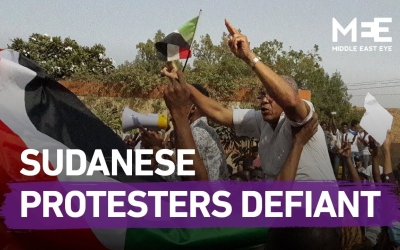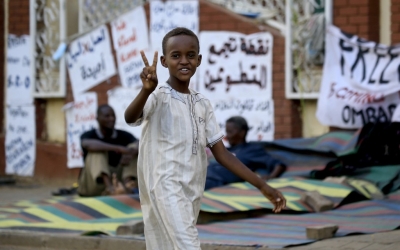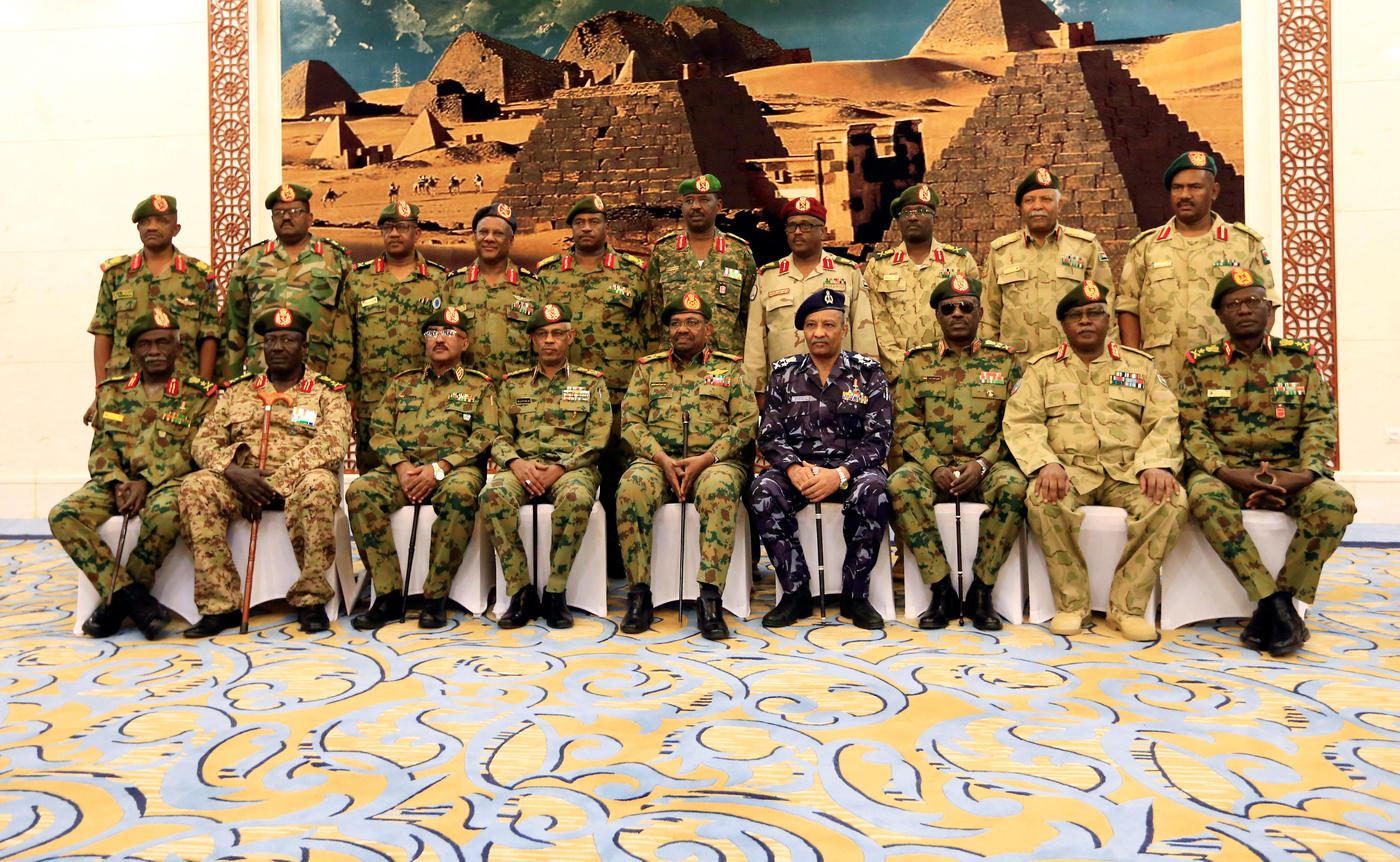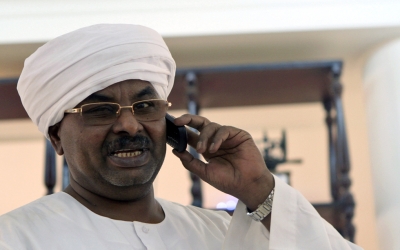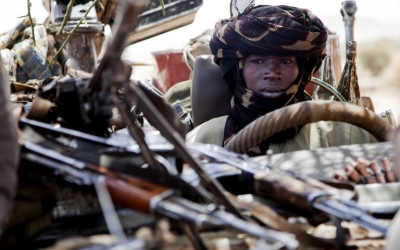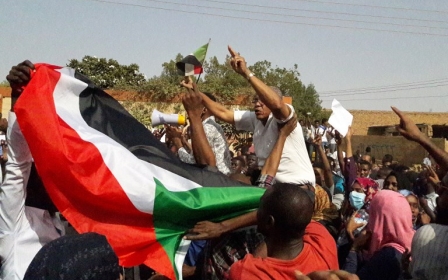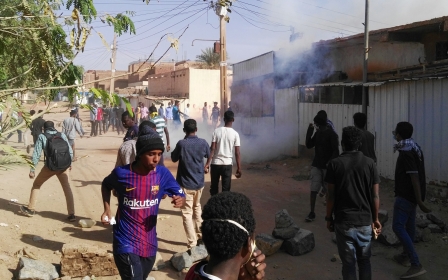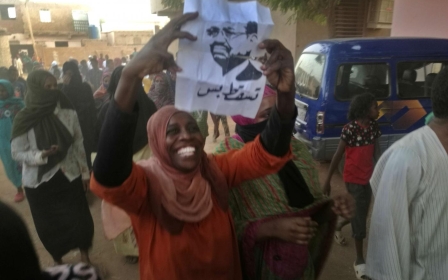EXCLUSIVE: Sudanese spy chief 'met head of Mossad to discuss Bashir succession plan'
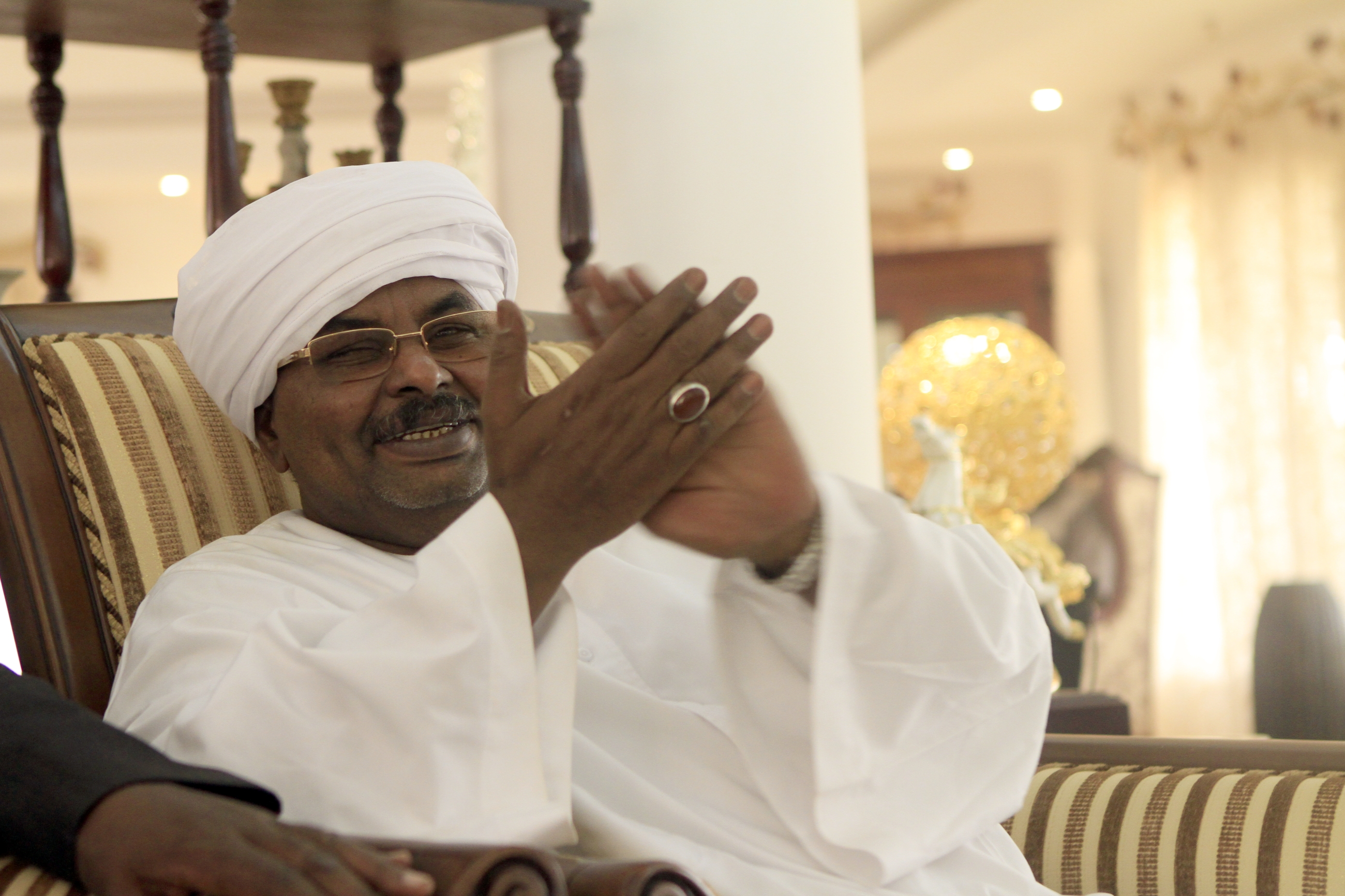
Sudanese intelligence chief Salah Gosh held secret talks with the head of Mossad in Germany last month as part of a plot hatched by Israel's Gulf allies to elevate him to the presidency when Omar al-Bashir is toppled from power, a senior Sudanese military source has told Middle East Eye.
Gosh, the head of Sudan's National Intelligence and Security Services (NISS), met Yossi Cohen on the sidelines of the Munich Security Conference in a meeting arranged by Egyptian intermediaries with the backing of Saudi Arabia and the United Arab Emirates, the source said.
The Saudis, the Emiratis and the Egyptians see Gosh as "their man," the source said, in a behind-the-scenes power struggle now taking place in Khartoum after months of anti-government protests that many now see as the beginning of the end of Bashir''s three-decade rule.
"There is a consensus that Bashir will go within the ruling party and the army. The battle is about who is coming after," said the source.
"Gosh has strong links with the Saudis, the Emiratis and the Egyptians. They want Bashir out, and they want their man in his place."
A spokesperson for the Munich Security Conference confirmed that both Gosh and Cohen had attended this year's event, which took place 15-17 February. Another diplomatic source spoken to by MEE corroborated details of the meeting.
Gosh also met European intelligence chiefs, the head of the Common Media Center, which is close to the Sudanese government, told MEE.
Why are Sudanese protesting against their government?
+ Show - HideSudanese protests have evolved in the space of less than six months from complaints about bread prices to calls for long-term leader Omar al-Bashir to go and demands for a civilian-led transition to democracy.
Here's a summary of the key moments so far since the protests began.
19 December 2018: People take to the streets in the city of Atbara to protest against a government decision to triple the price of bread, torching a local ruling party office. By the next day protesters on the streets of Khartoum and other cities calling for "freedom, peace, justice". Police try to disperse the crowds, resulting in at least eight deaths. Dozens more will be killed in the weeks of protest that follow
22 February 2019: Sudanese President Omar al-Bashir declares a nationwide state of emergency. He swears in a new prime minister two days later, as riot police confront hundreds of protesters calling for him to resign
6 April: Thousands gather outside the army's headquarters in Khartoum, chanting "one army, one people" in a plea for the military's support. They defy attempts by state security forces to dislodge them and troops intervene to protect them
11 April: Military authorities announce they have removed Bashir and that a transitional military council will govern for two years. Despite celebrations at Bashir's demise, protest leaders denounce the move as a "coup" and the protesters remain camped outside army headquarters.
14 April: Protest leaders call on the military council to transfer power to a civilian government
20 April: Sudan's military rulers hold a first round of talks with protest leaders
27 April: The two sides agree to establish a joint civilian-military ruling council, but talks stall over differences in the composition of the council, with both sides demanding a a majority
15 May: With negotiators reported to be close to agreeing a three-year transition to civilian rule, military leaders suspend talks and insist protesters remove barricades outside the army's headquarters. Talks resume on 19 May but break down again on 20 May, with the opposition insistent that a civilian must head the transitional governing body
28 May: Thousands of workers begin a two-day strike to pressure the military rulers and call for civilian government
3 June: At least 35 people killed and hundreds injured, according to opposition-aligned doctors, as security forces firing live ammunition move to disperse the protest camp outside army headquarters
4 June: General Abdel Fattah al-Burhan, the head of the military council, announces that all previous agreements with protest leaders are scrapped and says elections will be held in nine months
According to the source, Bashir was unaware of the "unprecedented" meeting between Gosh and Cohen in Munich. Its purpose was to highlight Gosh as his potential successor and to bring Israel on board to secure US support for the plan.
"The Israelis are seen as their ally, the one they can depend on to open doors in Washington," he said.
The Mossad, Israel's national intelligence, has played the role of foreign ministry in dealing with officials of countries that do not have a peace treaty with Israel, according to Israeli media.
"The Mossad is being used as a foreign ministry in ties with all the states that do not have diplomatic ties with Israel," an Israeli official told Channel 13 in a report on normalising ties between Israel and Bahrain.
CIA's man in Khartoum
Gosh is well known in Washington, where he earned a reputation during the 2000s as a spy chief with whom the CIA could work in the "war on terror" against al-Qaeda, even visiting the US in 2005 when, as now, Sudan was listed by the State Department as a state sponsor of terrorism.
A report by the Africa Intelligence website last month also said that the CIA had identified Gosh as its preferred successor to Bashir if the Sudanese president's position became untenable.
Citing a report by a Gulf state embassy in Washington, the website said that the CIA was not working to bring about regime change because the Sudanese government was providing valuable intelligence on al-Shabaab in Somalia, in Libya, and on the Muslim Brotherhood.
But the embassy report said the CIA would work to ensure that Gosh replaced Bashir if the protests could not be contained.
Bashir has sought to assert his authority in recent days by promoting army officers to senior positions and introducing sweeping new emergency powers by presidential decree in an effort to halt the countrywide protests.
The government reshuffle came soon after Gosh had told reporters in Khartoum on Friday that Bashir would step down as leader of the ruling National Congress Party and would not contest presidential elections in 2020.
Bashir named his defence minister, General Awad Ibnou, as first vice-president and appointed 16 army officers and two NISS officers as governors of the country's 18 provinces.
On Thursday night, he handed over leadership of the NCP to his newly appointed deputy, Ahmed Harun. The NCP said in a statement that Harun would serve as acting chief until a new president was elected at the party’s next convention.
'Militarisation' of the state
Analysts in Khartoum told MEE this week that Bashir appeared to be moving towards the "full militarisation" of the state and elimination of all opposition within the ruling party.
But MEE's source said that the army remained wary of Gosh and Saudi and Emirati influence in the country. He pointed to sympathetic coverage of the protests in Saudi-backed media usually opposed to "popular change".
"The media are very interested in these protests. That would not happen without a green light," he said.
Gosh headed NISS between 2004 and 2009, when Bashir appointed him as his national security adviser. He was sacked in 2011 and later arrested on suspicion of involvement in a coup plot, but was released with a presidential pardon in 2013.
He was reappointed as the head of NISS in February 2018. His return was seen as a move by Bashir to crack down on dissent as the country faced worsening economic problems and anti-austerity protests, and also to build bridges once again with the US following the lifting of sanctions in late 2017.
According to MEE's source, Gosh's return to NISS was also sweetened by Saudi promises of financial support for the ailing Sudanese economy.
In January, Saudi Minister of Commerce and Investment Majid Al-Qasabi said during a visit to Khartoum that Riyadh had provided 8bn riyals ($2.1bn) to Sudan over the past four years.
'Fickle friend'
But Bashir has also sought to play the Saudis and the Emiratis off against regional rivals Qatar and Turkey, which also have strategic interests in Khartoum, costing him goodwill on all sides, according to a regional analyst quoted by the Africa Confidential website.
"Riyadh and Abu Dhabi, as well as Doha, have regarded Bashir as a fickle friend because of his tendency to play both ends against the middle," the unnamed analyst said.
"He has pledged allegiance in the past in return for subsidies and then gone his own way."
MEE understands that American and British diplomats are also working to persuade Bashir to step down in return for a promise of immunity from prosecution at the International Criminal Court where he was charged with war crimes in 2009 over alleged atrocities committed by government forces and pro-government militias in Darfur.
Bashir is also reported to have discussed possible immunity with United Nations Secretary-General Antonio Guterres on the sidelines of last month's African Union summit in Ethiopia.
Elements of the Sudanese political opposition, most notably its figurehead, Sadiq al-Mahdi, have long proposed freezing the ICC indictment in return for Bashir stepping down as a possible way forward.
However, rebel groups in Darfur, some of whose leaders have handed themselves into ICC custody after also being charged with war crimes, have said they would reject any such move and would abandon peace talks as a result.
The Munich Security Conference has long provided a Bavarian backdrop for discreet encounters between geopolitical antagonists and intelligence chiefs, with Cohen a regular attendee at the event.
This year's speakers included Egyptian President Abdel Fattah el-Sisi, Iranian Foreign Minister Mohammad Javad Zarif, Qatari Deputy Prime Minister and Foreign Minister Mohammed bin Abdulrahman Al Thani.
This article is available in French on Middle East Eye French edition.
Middle East Eye propose une couverture et une analyse indépendantes et incomparables du Moyen-Orient, de l’Afrique du Nord et d’autres régions du monde. Pour en savoir plus sur la reprise de ce contenu et les frais qui s’appliquent, veuillez remplir ce formulaire [en anglais]. Pour en savoir plus sur MEE, cliquez ici [en anglais].


